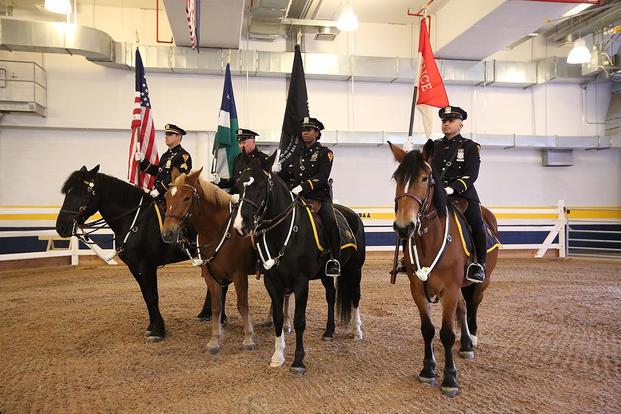When job seekers thinking about a law enforcement career contemplate their ultimate professional goals in police work, they typically think of promotions to sergeant, lieutenant or captain. But there are other careers within law enforcement to consider, including a number of specialized disciplines that allow these professionals to stay involved in policing without spending most of their workday on the streets.
Here are a few of the dozens of specialized occupations open to aspiring law-enforcement professionals:
Related: Search for law enforcement jobs.
Latent Print Examiner
Even in this age of sophisticated DNA testing, the professionals who analyze and match fingerprints remain central to the forensic function of police departments. Fingerprint specialists, known in the profession as latent print examiners, compare crime scene evidence to national databases of prints by using a variety of technologies.
Latent print examiner positions often require a bachelor's degree in science or the equivalent in training and experience. Successful candidates have years of experience in law enforcement or a latent print examiner certification from the International Association for Identification (IAI).
Latent print examiners typically earn between $36,000 and $60,000, according to 2005 job postings for midsized police departments.
Polygraph Examiner
Police polygraph examiners ask the questions and tell detectives whether the suspect's or witness's answers appear to be truthful. The professionals who operate polygraph technology and interpret the results must have a strong understanding of human physiology and psychology and then use that knowledge under the stressful circumstances of criminal investigations.
Police polygraph examiners must typically complete an education program accredited by the American Polygraph Association. According to job postings, these professionals typically are paid $46,000 to $89,000 in big-city departments, where their services are in greatest demand.
Search for polygraph examiner jobs.
Sketch Artist
Another important investigative specialist in the contemporary urban police department is the sketch artist (also known as composite artist). Police sketch artists have a tough job, working from the imperfect memories of victims and witnesses to create an image that's accurate enough to produce a match with the perpetrator.
Many police artists still sketch by hand. Others use computer programs to create and tweak facial features until witnesses are satisfied.
"We combine art skills with years of experience investigating," said officer John Skinner, a 30-year veteran of the Concord Police Department in Massachusetts, who spends part of his week doing sketches. Skinner finds the assignment an ideal way to combine his interests in art and criminal justice.
Police sketch artists must generally take 40-120 hours of instruction at a school approved by the IAI.
Related: Does your resume pass the 6-second test? Get a free assessment.
Community Relations Officer
In this era of community policing, community relations officers play a key role in big-city departments. Sometimes called community liaison officers, these professionals build links between their departments and schools, youth organizations, charities and other nonprofits in the community and businesses to improve poor social conditions that engender criminal behavior.
Police officers typically become involved in community relations because it is a lifelong interest. Some may have no formalized training in the specialty; others have a degree in criminal justice or sociology.
Community relations officers are often sergeants or lieutenants and are compensated on those pay scales. Police sergeants most commonly earn $45,000 to $70,000, according to Monster's Salary Wizard.
Special Assignments
There's another avenue of career mobility for big-city officers who demonstrate superior skills and are willing to go for additional training: an assignment to a specialized police unit. These assignments include anti-gang, antiterrorism and canine units, arson and bomb squads, SWAT teams and the white-collar crimes division, according to "John Douglas's Guide to Landing a Career in Law Enforcement."
Special police assignments vary widely in terms of qualifications and pay. Most of their training is acquired on the job, and these professionals tend to receive greater compensation than patrol officers do. Patrol officers typically earn a median salary of $41,000 in a town such as Kingsport, Tennessee, to $50,000 in a city such as Los Angeles, according to Monster's Salary Wizard.
Professor Michael Kimmel is a sociologist who is among the leading researchers and writers on men and masculinity in the world today and the author or editor of more than 20 volumes, including his latest, "Guyland."
Related: For the latest veteran jobs postings around the country, visit the Military.com Job Search section.
The Next Step: Find the Right Veteran Job
Whether you want to polish up your resume, find veteran job fairs in your area, or connect with employers looking to hire veterans, Military.com can help. Sign up for a free Military.com membership to have job postings, guides and advice, and more delivered directly to your inbox.






